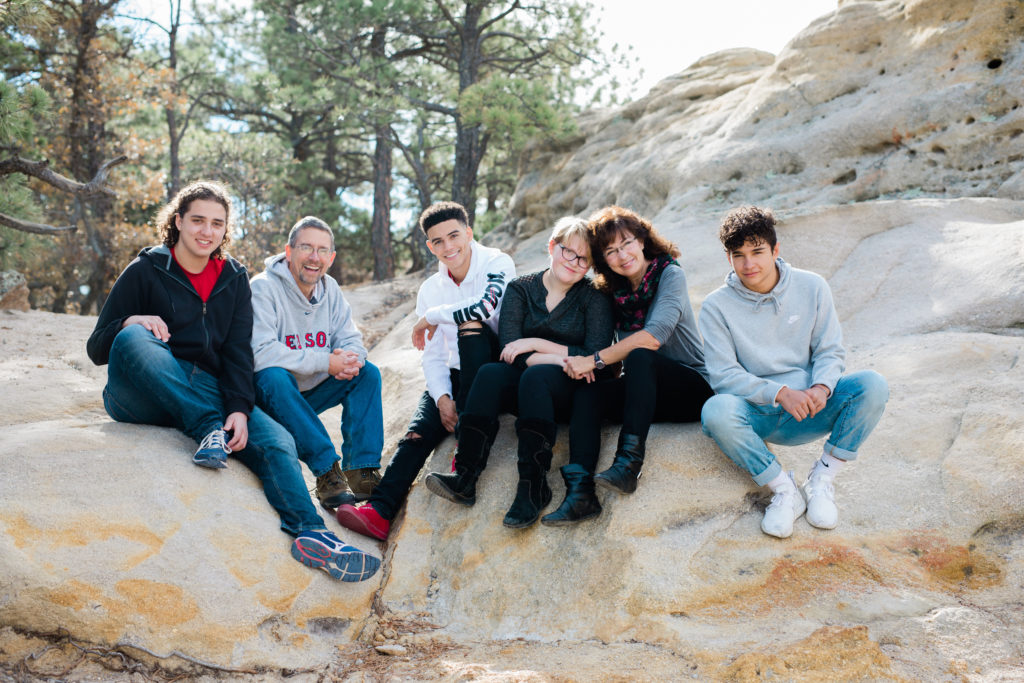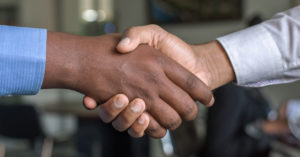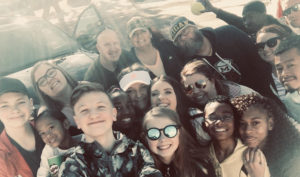I grew up in rural New Hampshire in the 1960s and 1970s. During my first 18 years of life, I can only remember ever seeing one Black person in our local area, a student who attended our regional high school for one year. Only seeing him from a distance (but not getting to know him) was a novelty, but otherwise I never thought about race.
Race didn’t come up in our dinner-time conversations and I never detected any racial prejudice in my family. Race issues and race tensions were something that happened elsewhere – in the big cities or in the South. I just wasn’t aware of race as I was growing up.
I began my spiritual journey with God just before I went to college in 1977. One of the first things I did when I got to West Point was attend church and then a Christian Fellowship group. Through that group, I continued my spiritual journey while interacting with believers from all across the country and from varied backgrounds. Many had strong spiritual walks and became my good friends.
One of my best friends was a Black cadet with a deep spiritual walk and the ability to bring Jesus into any conversation.
We have been close friends now for 45 years. He was in my wedding, I have lived with him; we love each other as Christian brothers, and have remained close even though the Army took us to different locations. I didn’t see him as Black, but as my brother and friend.
I didn’t see his race and the impact that it might have in his life.
Before my wife and I got married, we talked about adoption as a way to grow our family since we got married in our mid-thirties. We even talked about having a multiethnic family. So after our biological son was about three, we decided to adopt while I was stationed in Maryland.
The wait time was significantly less if we wanted a bi-racial or Black child. This fit perfectly with our desire for a multiethnic family. So our second son is Black. Our third son is Hispanic. Our other two children are white. I love these children as my own, but I didn’t fully appreciate the impact of their race or ethnicity.

The one thing I couldn’t teach my Black son was what it is like to live as a Black man. But God was able to step in and bring godly Black men into his life to invest in him and give him that perspective. That was especially true as he got older. I was aware that there was hate and racism that was out in the world (even if I had not experienced it) and wanted him to be prepared. I thank God for bringing these men into my son’s life.
I didn’t really look closely at why life was like this, why there was this issue with race. But God wasn’t content with where I was. He had something more in store.
Generally, I am a conflict avoider. I want people to get along, I want unity, I want people to tolerate each other even if they don’t like or love each other. All the conflict, unequal treatment, protests, riots, and killings over the past several years caused me to be uneasy and bothered, but I didn’t know how to address it.
Sometimes it felt as if I were under attack for being a racist, when I actually didn’t see race, and I felt blamed for the issues of racism. The words “White Privilege” made it sound like I had taken advantage of the system. Shouldn’t it be a “human privilege” that all people should be treated fairly and given equal opportunity? I viewed myself as the good guy who didn’t see different races, but only one race… the human race.
Then in November, my Black friend called and invited me and my wife to attend a Christian racial reconciliation Zoom group. He was very excited about the group and felt that it would be good for us to participate. Because he invited us, I committed to attending. I didn’t know what to expect. On the Zoom call, there were about 30 people from across the country with the majority from Northern Virginia. There were Blacks, Whites, Young, and Old. All were followers of Jesus.

We started with prayer and then discussed our reactions to the PBS Series, “Reconstruction: America after the Civil War” by Dr. Henry Louis Gates. The frequent refrain was, “Why is this history not taught in school?” Most in the group did not know of the successes of the Reconstruction period or what lead to its failure and the subsequent rise of the Jim Crow era.
After 4 weeks on Reconstruction, we continued with a devotional called the “An American Lament” by the Repentance Project that took us through the history of slavery in America and its aftermath, the church’s involvement, and ways to lament the consequences of this great evil in our country.
I grew significantly in my understanding of how race has divided us as a country and within the church. I also grew connected to the others in the group as fellow sojourners on the path of racial understanding.
In addition to the education I was receiving in the history of slavery, segregation, and racism, there were two related experiences that significantly impacted me.
The first was when one of the white women in the group shared an interaction she had with a Black man on her run that day. For some reason, he called her a racist because she wore her mask, which was the furthest thing from the truth. This interaction was both shocking and traumatic, and her thought was, “you don’t even know me.”
The leader of the group that night (a Black man) stopped the planned discussion and directly addressed her. He said he was sorry that she had been treated badly by a Black man and that what she had endured was not right. He noted how many in the Black community felt the same way. She felt heard and validated. I was struck by his ability to connect with her and apologize for the wrong that wasn’t his.
This was what Jesus would have done and what we as white people need to do with our Black friends and family members.
The second experience occurred the following week when two of our members, Black women, cried as they shared the hurt and pain they had endured as children growing up with racism. These episodes had left wounds that were not healed even decades later. This time, the white members of the group came forward and expressed their sorrow for the hurts that these two women had endured, apologizing that the wounds had never been addressed.
These words were like the Balm of Gilead from God bringing the start of healing and restoration. What a witness to the healing power that God has invested in His people to bring about reconciliation and restoration!
Through these powerful episodes, God had opened my eyes to the great hurt and trauma that racism has caused to my brothers and sisters in the church and to my fellow citizens in this country that I have been committed to defending.
So the question was, “What do I do now?”
I believe God has challenged me to get out of the stands and into the arena. He is asking me to be a conduit to bring justice and healing to those who have been traumatized and hurt. He wants me to be a vessel to help believers see the harm of racism and the opportunity to be agents of His grace and mercy.
So God led me to take the first step, because my friend invited me. And God is leading me to take additional steps in the hope of bringing healing to others and to the church. I sense God calling me to move beyond feeling that I am being falsely accused that because I am white, I am therefore a racist. I am called and must do this for my friends and my son.
I know this will take time. There is not a quick fix. It has taken our country over 400 years to get to this place and time, and so we must be ready for the long haul. But God is able to change hearts and bring healing.
I want to walk with Him in what He is doing to bring about racial reconciliation and peace.
If this Racial Reconciliation Discussion Group sounds like something you’d like to be a part of, we’d love for you to join us! You can find more info here, or contact Brian.
Tuesday evenings, begins May 18th | 7PM-8:30PM
We’ll meet over Zoom for about 12-weeks to discuss our country’s national sin of slavery and its impact today, using some educational and devotional tools to shape our discussions.



